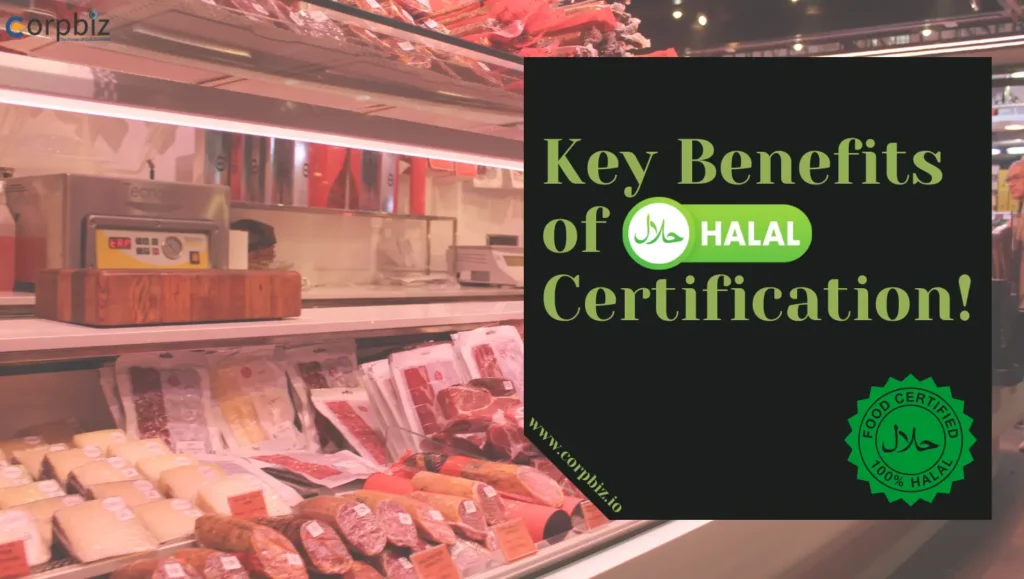In the global food business, there is a very high demand for Halal-certified products, both by consumers and businesses. Besides the religious requirement, it shows food and other products conform to Muslim dietary laws for consuming Muslims. Its importance goes far beyond such religious requirements, though. Halal has become an amalgamation of quality, safety, and ethical production meant to attract a much wider market.
In this report, we find the keys to enjoying advantages with both the business and consumer sides of the equation for Halal certification, which makes it a game-changer in today’s competitive marketplace.
What is Halal Certification?
Halal certification is the process by which a product or service is certified to be in compliance with the Shariah law of Islam. The word “Halal” is used for “allowed” or “lawful” in the Arabic language. Halal certification guarantees that the product, normally food, complies with the necessary standards. The certification process involves the scrutiny of methods of sourcing, preparation, and processing to ensure that they comply with Islamic dietary laws.
Many products may also be eligible to obtain Halal certification, including meat, processed foods, cosmetics, pharmaceuticals, and even catering and packaging services. One of the most important categories that require Halal food certification for businesses is food industries, as these are intended to cater to Muslim consumers on a global basis.
There are also various kinds of Halal certifications available: there are the Halal meat certificates for meat-related products, which guarantee that the animals were slaughtered according to Islamic guidelines. Businesses may also apply for a license and a certification on the entire process of their food production.
-
Increasing Market Presence
The most significant aspect concerning Halal certification is that it opens access to a huge and still-increasing consumer market. With over 1.9 billion Muslims globally, there is a huge demand for the products labeled Halal, hence need for any business looking to capitalize on this humongous opportunity.
Companies expand their reach not only to Muslim customers but also to non-Muslim customers who associate Halal with high-quality, ethical production standards by getting Halal Product Certification. Increased sales and brand recognition will take place, especially in countries that are populated mainly by Muslims, such as Indonesia, Pakistan, India, and regions such as the Middle East.
In addition, the Halal food market worldwide is also expected to expand exponentially in the coming years, thus proving to be a huge opportunity for the business world in terms of diversifying their product lines and entering potentially lucrative new markets. It benefits any business from the restaurant to manufacturing food products or exporting goods since it stands out as an added advantage both locally and internationally.
-
Improved Customer Confidence and Trust
But to consumers, especially in the observant perspective of Islamic dietary law compliance, Halal certification offers assurance of quality and conformity. Carrying a Halal food certification instills confidence in consumers that the food being purchased satisfies the required religious and ethical standards.
Above all, giving the food a halal certification is about the proof that food is not only allowed but also clean and free from contaminants. This would ensure strict regulations in checking the origin, preparation, and handling of food products in the process.
Besides attracting Muslim consumers, Halal certification is gaining recognition as a quality mark by non-Muslim consumers. People associate Halal products with appropriate animal treatment, clean production methods, and general safety while providing food. This creates confidence in the brand among consumers. Businesses can, therefore, reach a wider market, increase their trust factor, and increase the loyalty of different groups of consumers.
-
Meeting Ethical and Environmental Standards
The market demands it to be more sensitive toward ethics and environmental concerns today. Consumers now, in general, look for their products aligned with the values: that is to say, ethical sourcing should be followed, the products are not tested on animals, and there should be good practices at the place of production.
Halal certification comes close to many of these attributes. Getting a certificate for the halal meat process, for instance, guarantees the handling of animals in the most respectful manner and slaughter without torture. Specific additives, preservatives, or harmful substances are strictly forbidden in any Halal-certified product. As such, they are much healthier and even better for the environment.
Generally, the guarantee of certification of Halal products ensures that businesses are committed to ethical practices, thus greatly enhancing the reputation of such businesses.
These kinds of ethical positioning attract not only the Muslim consumer but also an increasing segment of non-Muslim consumers who appreciate consumption ethics.
-
Complying with International Standards
For some international expansion ventures, the demand for halal certification becomes essential. For this reason, many countries-qualifying those in the Middle East and Southeast Asia-scene that import food products would be ensured to be halal compliant. Thus, businesses may be excluded from this marketplace unless they possess an up-to-date Halal license.
Getting Halal certification gives an enterprise assurance that its products will meet the specific requirements of a specific international market. It serves like a passport for companies to export their products to countries that have strict Halal laws. Whether it is a Halal meat certificate for the exporting company of meat products or the Halal certification for packaged foods, such compliance with regulations opens up other business doors.
Thus, it aligns with other global standards, such as ISO (International Organization for Standardization) and HACCP (Hazard Analysis Critical Control Points) to increase the credibility and quality of the certified products.
-
Increase in Competitiveness and Brand Value
Standing out from the crowd is what winning in the increasingly competitive marketplace calls for. The value addition through Halal certification of your brands makes it distinguishable from competition. Once the customer sees the Halal logo on any product from your company, it instantaneously marks the product as high-quality and fulfills stringent standards.
Getting Halal certification is a very promising way for SMEs to fight back against large brands. It allows SMEs to penetrate a niche market and foster loyal customers, especially in places where the demand for Halal products is high.
Furthermore, if you have a Halal license or are certified as a Halal food, this would definitely enhance the goodwill of your brand in terms of being a responsible and ethical business. All this positivity boosts consumer’s trust, leading to increased sales as well as business growth in the long run.
-
Community Well-being Promotion
Besides adhering to religious laws, halal certification also promotes community well-being. The process of ensuring foodstuff products carries with it serious guidelines on hygiene, safety, and ethical practices that contribute to the health and welfare of the community at large.
The processes of Halal certification need to observe rigid checks so as not to contain some byproducts that may have the dangers of alcohol or pork. This gives an assurance to the consumer on safety and purity that supports not only the Muslim consumers but the rest of the community at large; thus, there is the enjoyment of healthier food products of high-quality hygienic standards.
It also boosts the local economy by assisting farmers, suppliers, and manufacturers in getting their products Halal-certified by corporations that promote such products.
Due to the strict standards, this has a positive ripple effect throughout the supply chain, thereby improving the general quality of food production.
Conclusion
Unquestionably, both businesses and consumers will receive assurance through Halal Certification. For businesses, this would open up avenues to enter new markets, gain the trust of consumers, and publicize commitments toward ethical, sustainable business practices. For consumers, Halal certification would assure them that the quality, safety, and standards for religious compliance are met through the products purchased.
In a steadily growing world that is coming closer, having a Halal product certification, be it a Halal license or even a meat delivery certificate to meet all the certainties of Halal, would make the competitiveness of a brand stronger and give more room for great businesses in local and global markets. Success in the food industry will continue to be spurred by the issuance of such certificates and an increasingly publicized awareness of dietary practices.



